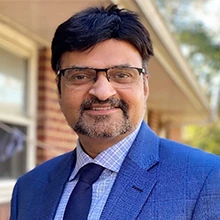 Poti Port. Georgia. Photo: Yuri Mechitov / World Bank
Poti Port. Georgia. Photo: Yuri Mechitov / World Bank
Inefficient management of public funds leads to missed opportunities for governments to invest in development priorities like education, healthcare, and infrastructure. Too often, governments borrow money while holding surplus funds that earn little or no returns. To address this, many countries have adopted the Treasury Single Account (TSA), an essential tool that brings all government accounts under the control of treasury, consolidates, and manages a government’s cash resources akin to a single bank account. According to the World Bank’s Handbook on Financial Management Information Systems for Government, a TSA under Treasury control offers accurate and timely information, thus improving cash planning and expenditure management.
Georgia has made significant progress in Public Financial Management (PFM) reforms, particularly with the implementation of the TSA. The country’s experience highlights the policy’s value and offers important lessons for other governments.
Phase 1: 2000-2012 – Establishing the TSA
Georgia's TSA journey began in the early 2000s as a response to a fragmented public finance system. Multiple government entities managed their finances through various bank accounts, leading to significant inefficiencies. In 2006, Georgia established a fully functional TSA, consolidating all central government revenues and expenditures into a single account at the National Bank of Georgia. Connecting with the Integrated Financial Management Information System (IFMIS) enabled the TSA to provide real-time tracking and management of public funds. Initially, the focus was on central government entities, which streamlined cash management and improved liquidity. By 2012, the government introduced web-based applications allowing budget organizations to submit payment requests electronically, which improved efficiency and accuracy. The initial implementation of the TSA showed the importance of centralizing government finances to improve liquidity and efficiency.
Phase 2: 2013-2021 – Centralization and Expansion
By 2015, the TSA was expanded to include local self-governments, which had previously managed budgets through commercial bank accounts. This expansion required substantial amendments to the budget code, upgrades to digital systems, and extensive capacity building. Real-time transaction recording made it easier to monitor public spending, which led to better budget management, financial savings, increased accountability, and greater public trust. The implementation of the TSA transformed Georgia's cash management capabilities. By consolidating all public funds into one account, the State Treasury gained a comprehensive view of its cash position and could forecast cash flow accurately. These advanced cash management practices were introduced in consultation and coordination with the central bank and international financial institutions like the World Bank and the IMF. The comprehensive cash forecasting model helped anticipate cash needs, and tools for money placement auctions and pledging high-liquid securities were also implemented. These practices resulted in cost savings from avoiding unnecessary borrowing and improved the overall management of financial resources.
Chart 1: Interest Revenues from Government Money Investment Operations (in Million GEL)
Chart 1 copyright: Davit Gamkrelidze, Ministry of Finance Georgia
New cash management reforms also brought non-financial benefits, enhancing Treasury functions, and improving efficiency. In 2019, an automated tax refund process linked to the TSA replaced the manual process and resulted in an increase in taxpayer satisfaction. Centralization of government accounts, including local governments, is crucial for enhancing financial oversight and achieving cost efficiencies.
Phase 3: 2022-Present – Leveraging AI for Enhanced Financial Management
In 2023, the final phase of TSA expansion was initiated to include the last group of organizations outside TSA coverage and adopt a nuanced approach for state-owned enterprises classified as “General Government” by 2026. As a result, Georgia’s TSA system will evolve into a centralized, efficient, and transparent framework. This transformation established a foundation for utilizing artificial intelligence (AI).
Leveraging AI presents significant opportunities, including machine learning to enhance transaction processing, fraud and anomaly detection, and risk analysis. Moreover, AI can be used for predictive analytics to enhance cash forecasting and provide real-time insights, enabling data-driven decision-making. AI offers valuable insights and efficiency gains, aligning with global best practices and Georgia’s PFM reforms. With support from the World Bank and IMF, these integrated technologies can significantly contribute to Georgia’s ongoing PFM advancements. The integration of AI into PFM processes can drive significant improvements in risk management and decision-making, setting a global example for innovation in public financial management.
Georgia's implementation of the TSA system shows how comprehensive PFM reforms can drive significant improvements in financial performance and efficiency, as demonstrated by PEFA Assessment Indicators. The effective use of TSA has supported advancements in multiple areas, both directly and indirectly. Notably, Georgia has gradually achieved an “A” score in key PEFA indicators, including: Predictability in the availability of funds for the commitment of expenditures; Accounting for revenue; Controls of payroll and non-salary expenditure; Financial data integrity.
The key lessons learned from Georgia’s experience include centralizing government finances to improve liquidity and efficiency, ensuring robust oversight and cost efficiencies through the integration of local government accounts, and leveraging AI to enhance risk management and decision-making.
As AI continues to integrate into PFM processes, it has the potential to enhance cash management and provide valuable insights from other countries’ experiences on deploying technology and achieving outcomes that can inform future global practices.





Join the Conversation